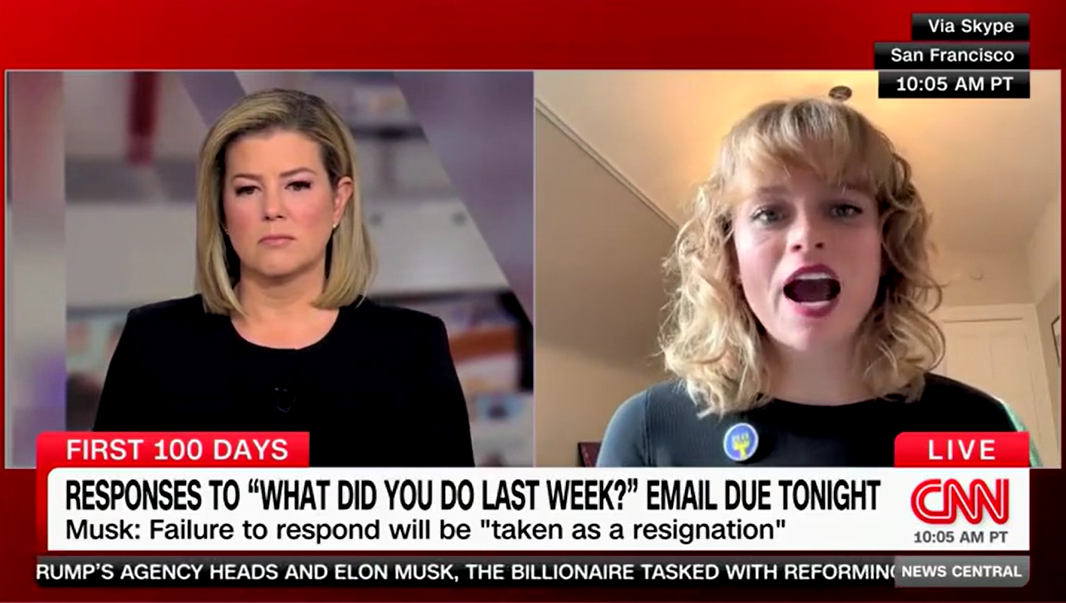Frustration Unleashed: Government Employee Reacts to Unexpected DOGE Inquiry
In a surprising turn of events, a government employee has voiced her frustration over an unexpected email inquiry regarding her involvement with the popular cryptocurrency, Dogecoin (DOGE). This incident not only raises eyebrows about workplace communications but also opens a broader conversation about the intersection of public service and digital currencies. As cryptocurrencies gain traction, the implications for government employees and the standards of transparency are becoming increasingly complex.
The Unexpected Inquiry
It all began when Jane Doe, an administrative officer at a local government agency, received an email from her superior requesting detailed information about her activities related to DOGE. The email, which seemed innocuous at first glance, quickly escalated into a source of anxiety and confusion for Jane.
“I was taken aback,” Jane admits. “I never expected my personal interests would become a topic of discussion at work. It felt invasive and unnecessary.” The inquiry was based on a recent policy that aimed to clarify the interactions of government employees with digital currencies, particularly in light of their rising popularity and the potential for conflicts of interest.
Understanding the Context
Cryptocurrencies, once a niche market, have exploded into mainstream consciousness, with DOGE leading the charge due to its meme-inspired origins and community-driven nature. Initially created as a joke, DOGE has transcended its whimsical beginnings to become a significant player in the cryptocurrency market, with a market cap exceeding billions.
This rise has not gone unnoticed by government bodies, prompting discussions about regulations and ethical standards. Many public institutions are now grappling with how to address employees’ financial activities in the realm of digital currencies while ensuring transparency and accountability.
The Role of Government Employees
As stewards of public resources, government employees are expected to maintain a high level of integrity and transparency. This expectation becomes particularly vital when dealing with emerging technologies like cryptocurrencies. While the inquiry into Jane’s activities may have stemmed from a place of due diligence, it serves as a reminder of the tightrope these employees walk.
- Transparency: Government employees must disclose any potential conflicts of interest, ensuring that their personal investments do not interfere with their public duties.
- Regulatory Compliance: The rise of cryptocurrencies has led to various regulatory measures, which government employees must be aware of to avoid any legal repercussions.
- Public Perception: The public expects government officials to act ethically, and any perceived improprieties can damage trust in public institutions.
Jane’s Reaction and Broader Implications
Jane’s reaction to the inquiry highlights a growing concern among government employees. Many feel that the lines between personal interests and professional obligations have become increasingly blurred. “I felt like my privacy was being invaded,” she expressed. “It’s one thing to ensure that we’re acting ethically, but it’s another to feel like we’re being monitored.”
This sentiment is not unique to Jane. Numerous government employees have voiced similar frustrations, fearing that personal hobbies or investments may come under scrutiny. The potential for misunderstandings or misinterpretations can create an atmosphere of distrust and anxiety.
What This Means for the Future
As cryptocurrencies continue to evolve, the implications for government employees will likely become more pronounced. Here are some potential outcomes:
- Policy Development: Governments may need to develop clearer policies regarding cryptocurrency investments by their employees to ensure transparency without infringing on personal freedoms.
- Training and Education: Increased training around digital currencies for government employees could help mitigate misunderstandings and foster a more informed workforce.
- Public Dialogue: Open conversations about the role of digital currencies in public service could help bridge the gap between personal interests and professional obligations.
Conclusion: Striking a Balance
The incident involving Jane Doe serves as a crucial reminder of the complexities that arise at the intersection of public service and digital currencies. As the popularity of cryptocurrencies like DOGE continues to grow, so too will the need for clear guidelines and open dialogues within government agencies.
Ultimately, it’s about finding a balance—ensuring that employees can engage in personal interests while maintaining the integrity and transparency expected of public servants. This ongoing conversation will undoubtedly shape the future of how government employees navigate the rapidly changing landscape of digital currencies.
In the end, Jane’s frustration may have sparked a necessary dialogue, one that could lead to more nuanced policies and a better understanding of how to manage the intersection of work and personal investment in the digital age.
See more Future Tech Daily

